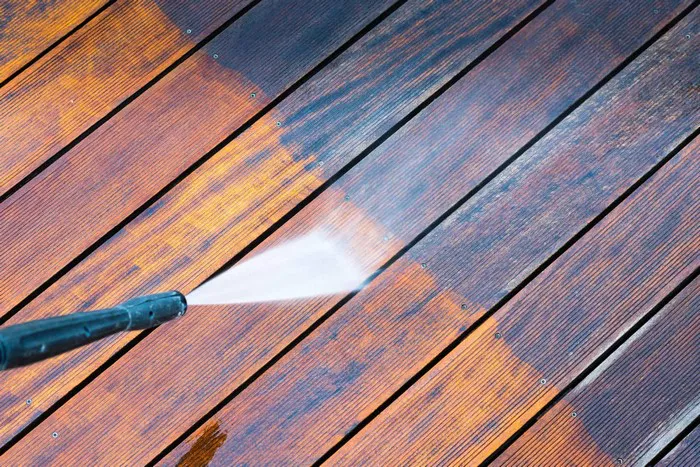Pressure washers are powerful tools that can effectively clean various surfaces around your home. They use high-pressure water to remove dirt, grime, mold, and other stubborn stains. However, many homeowners wonder whether they can enhance the cleaning power of their pressure washers by adding bleach. This article will explore the safety, benefits, and drawbacks of using bleach in a pressure washer, along with some guidelines for effective use.
Understanding Pressure Washers
Before diving into the specifics of using bleach in a pressure washer, it is essential to understand how these machines work. A pressure washer uses a motor or engine to pump water through a high-pressure hose and out through a spray nozzle. The pressure created allows the water to clean surfaces effectively. Pressure washers come in different types, including electric and gas-powered models. They also vary in terms of pressure output, typically measured in PSI (pounds per square inch).
Types of Pressure Washers
Electric Pressure Washers: These are generally lighter and quieter than gas models. They are suitable for light to medium cleaning tasks, such as washing cars, patios, and garden furniture.
Gas Pressure Washers: These machines are more powerful and are ideal for heavy-duty cleaning tasks, such as cleaning driveways, decks, and siding. They can produce higher PSI levels than electric washers.
Understanding the type of pressure washer you have is crucial when considering the use of bleach.
The Role of Bleach in Cleaning
Bleach is a common household cleaning agent known for its disinfectant properties. It is effective at killing mold, mildew, and bacteria. When diluted properly, bleach can be used to clean various surfaces, including decks, siding, and concrete. Many homeowners use bleach to enhance the cleaning power of their pressure washers.
Benefits of Using Bleach
Effective Disinfectant: Bleach kills germs and bacteria, making it an excellent choice for cleaning surfaces that may harbor harmful pathogens.
Mold and Mildew Removal: Bleach is particularly effective at removing mold and mildew from surfaces. This is especially useful for outdoor cleaning tasks, where these growths are common.
Whitening and Brightening: Bleach can help restore the original color of surfaces, making them look fresh and new again.
Can You Use Bleach in a Pressure Washer?
While bleach can be an effective cleaning agent, using it in a pressure washer requires careful consideration. Most manufacturers do not recommend putting bleach directly into the pressure washer’s tank. The reason for this is that bleach can be corrosive and may damage the internal components of the machine over time.
Risks of Using Bleach in Pressure Washers
Corrosion: Bleach can corrode metal parts and rubber seals in a pressure washer. This can lead to costly repairs or even render the machine unusable.
Clogging: Bleach can leave residues that may clog the nozzle or other parts of the pressure washer. This can affect the machine’s performance and lead to malfunctions.
Health Risks: Using bleach can pose health risks if proper precautions are not taken. Inhalation of bleach fumes can irritate the respiratory system, and contact with skin can cause burns.
Proper Use of Bleach with Pressure Washers
If you decide to use bleach in conjunction with your pressure washer, there are safer methods to consider. Instead of adding bleach directly to the pressure washer’s tank, follow these guidelines:
Dilution is Key
When using bleach for cleaning, it is essential to dilute it properly. A common dilution ratio is one part bleach to ten parts water. This dilution will still provide effective cleaning without being overly harsh on surfaces or your equipment.
Use a Dedicated Bleach Injector
A dedicated bleach injector can be installed on your pressure washer. This attachment allows you to add bleach to the water stream safely. The injector will dilute the bleach as it mixes with the water, reducing the risk of corrosion and damage to your machine.
Test a Small Area First
Before using bleach on a larger surface, test it on a small, inconspicuous area. This step ensures that the bleach will not cause discoloration or damage.
Wear Protective Gear
When working with bleach, always wear protective gear. This includes gloves, goggles, and a mask to prevent inhalation of fumes. Proper ventilation is also important when using bleach outdoors.
see also: Which Is the Best Pressure Washer to Buy?
Alternatives to Bleach in Pressure Washers
If you are concerned about the risks of using bleach in your pressure washer, several alternatives can provide effective cleaning without the drawbacks.
Oxygen Bleach
Oxygen bleach is a safer alternative to chlorine bleach. It is less harsh on surfaces and does not produce harmful fumes. Oxygen bleach can be used to clean decks, siding, and outdoor furniture effectively.
Commercial Cleaning Solutions
Many commercial cleaning products are designed for use with pressure washers. These solutions often contain environmentally friendly ingredients that are effective at removing stains, mold, and mildew without the risks associated with bleach.
Vinegar and Baking Soda
For light cleaning tasks, a mixture of vinegar and baking soda can be effective. Vinegar is a natural disinfectant, while baking soda acts as a gentle abrasive to help remove stains.
Conclusion
In summary, while bleach can enhance the cleaning power of a pressure washer, it is essential to approach its use with caution. Directly adding bleach to your pressure washer can cause damage to the machine and pose health risks. Instead, consider using a dedicated bleach injector or alternative cleaning solutions that are safer for both your equipment and your health.
Proper dilution, testing, and protective gear are crucial when using bleach for cleaning. Ultimately, understanding the risks and benefits of using bleach in a pressure washer will help you make an informed decision. With the right approach, you can achieve a clean and well-maintained outdoor space without compromising the integrity of your pressure washer.
Related topics:

